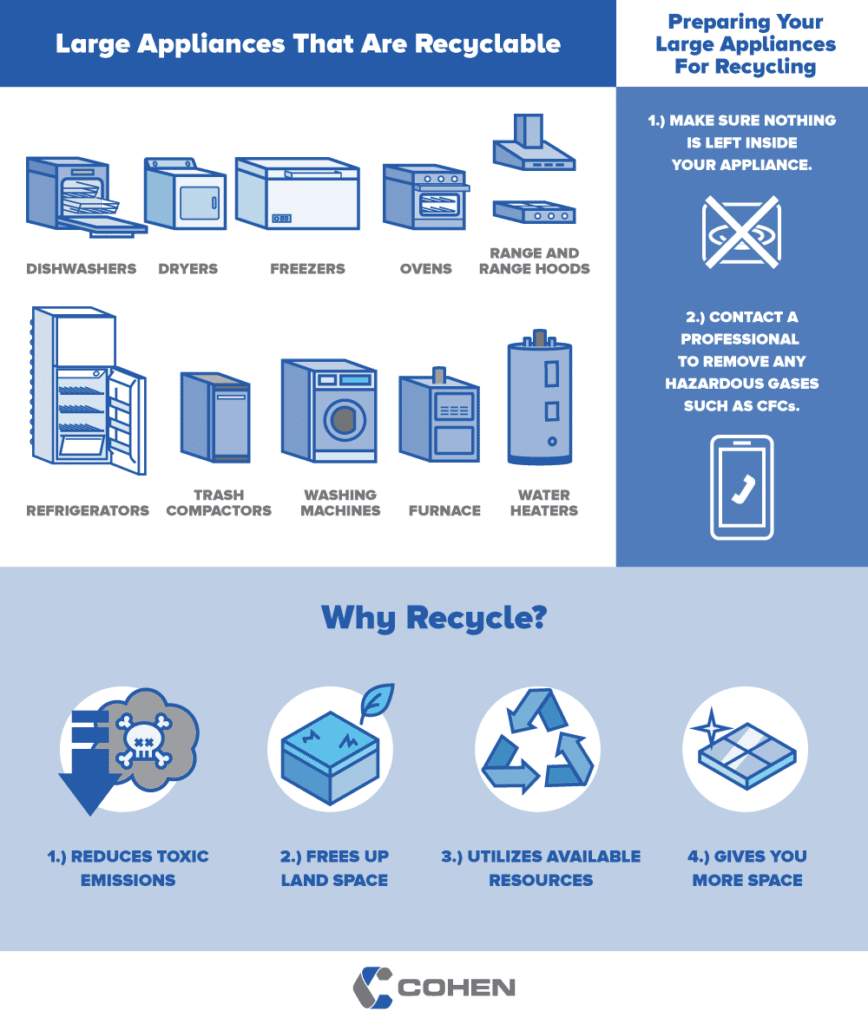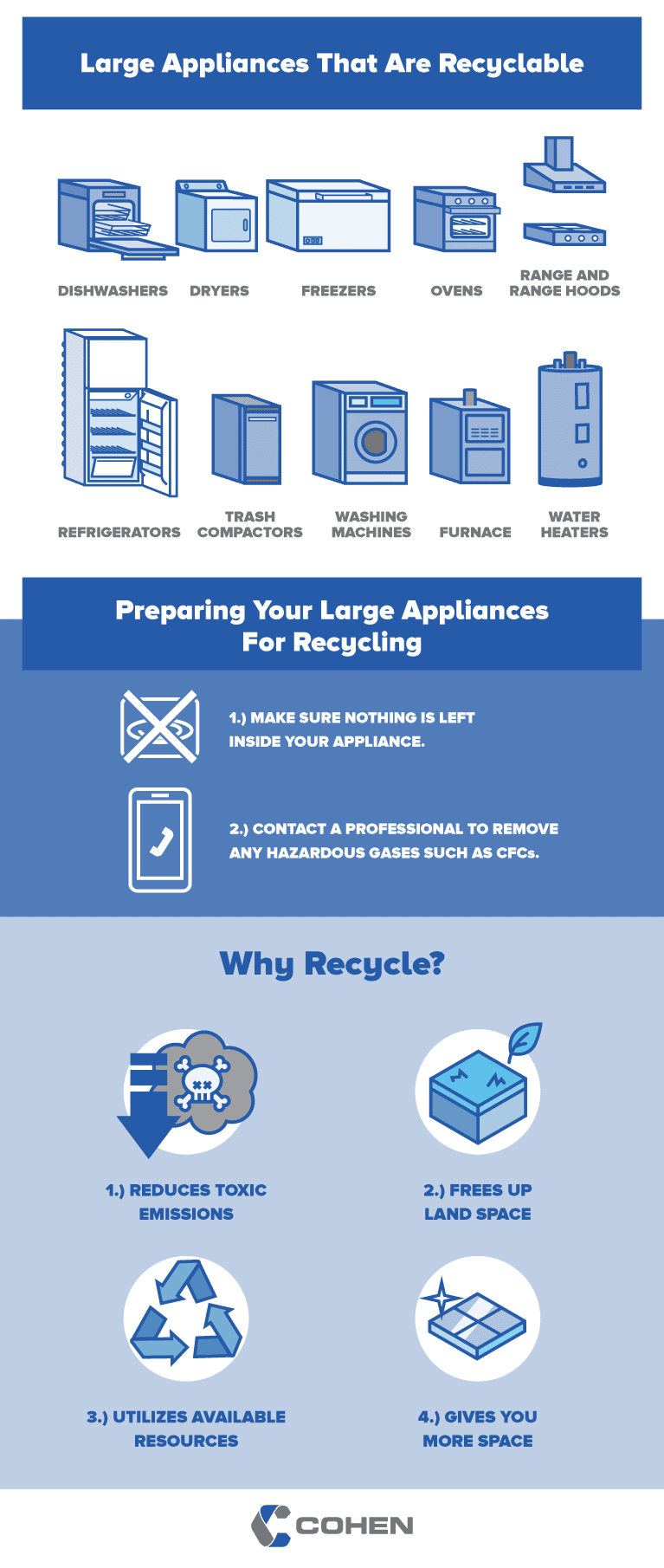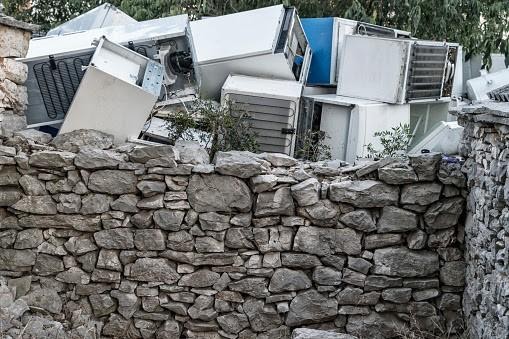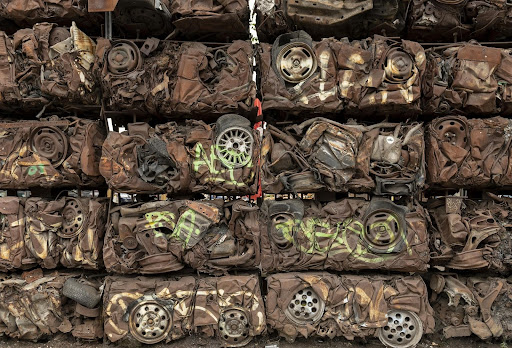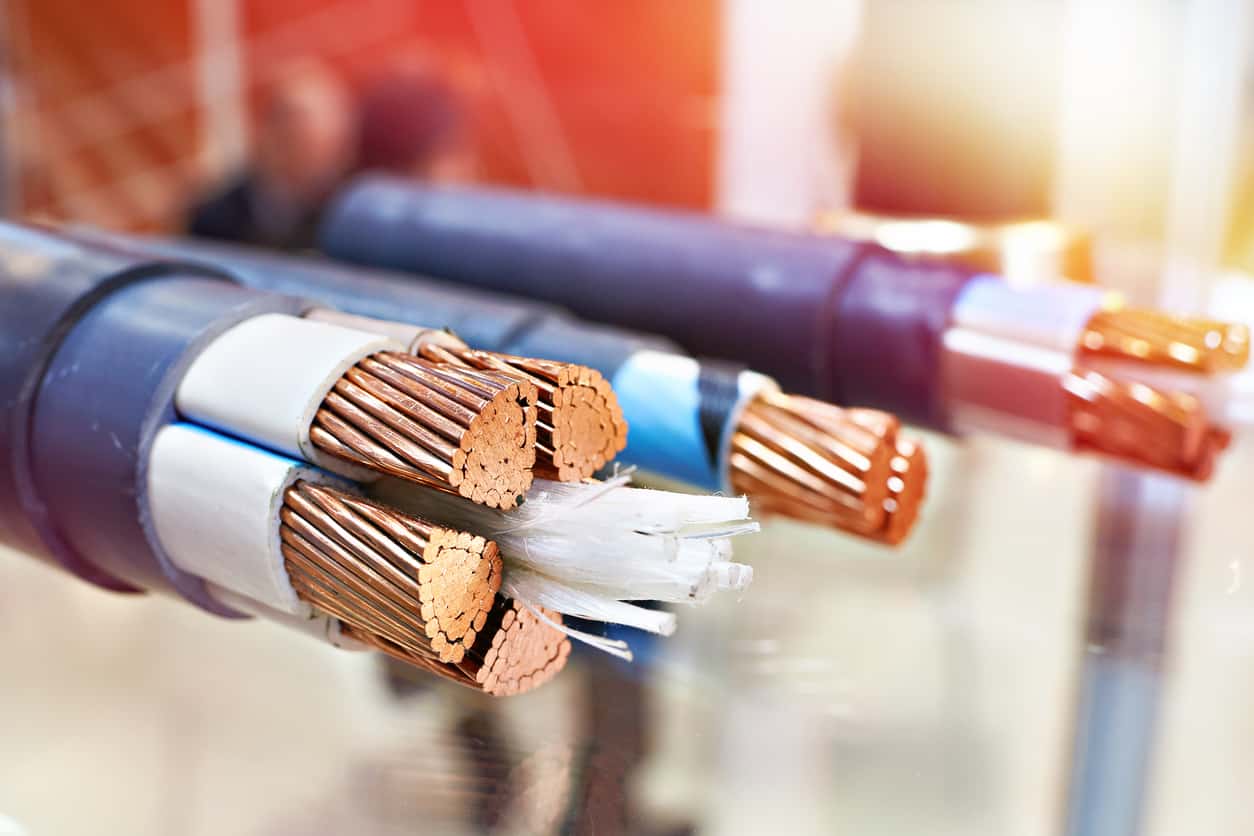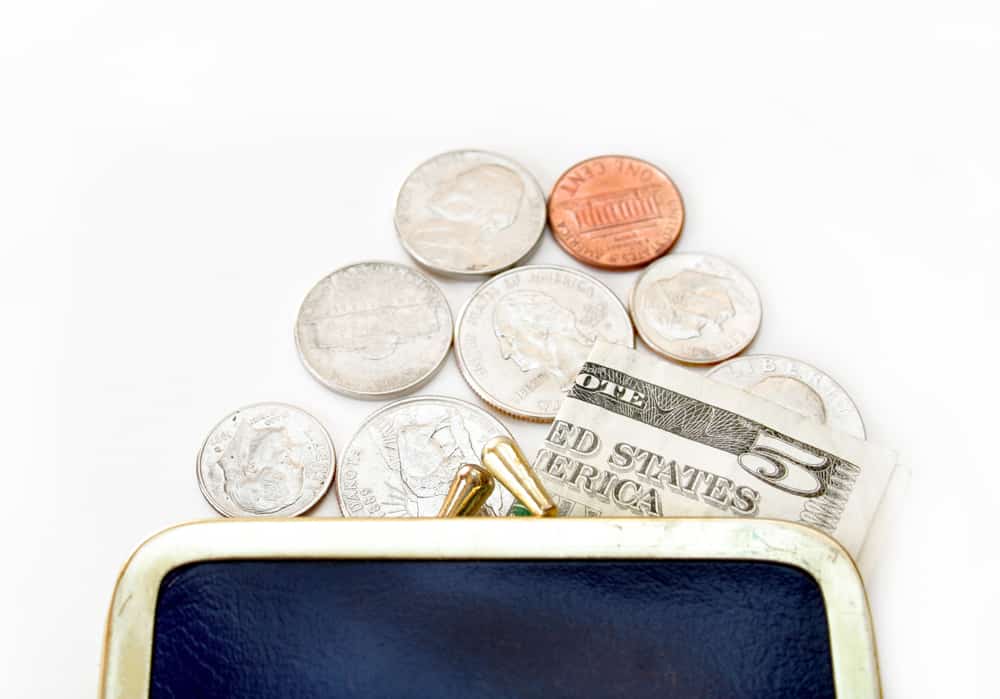When large appliances become old and inoperable, getting rid of them can seem like a hassle. If improperly disposed of, these appliances (also known as white goods) can pose serious problems to the environment. The Environmental Protection Agency (EPA) estimates that about 9 million refrigerators and freezers end up in the dump each year.
However, most of these appliances still have some value — even if they’re no longer functional — since they contain recyclable metals and materials. Large appliance recycling is not only good for the environment, it also allows for manufacturers to use repurposed parts and may even put a little extra cash in your pocket.
This article will show you how and where to recycle appliances in your city.
How To Recycle Large Appliances
In most places, it’s illegal to dump white goods on your property, around your neighborhood, or in the local landfill. Appliances release toxic substances — including polychlorinated biphenyls and greenhouse gases — that are harmful to the environment and dangerous to human health.
Recycling is always your best option. Common appliances that can be recycled include:
- Dishwashers
- Dryers
- Freezers
- Ovens
- Range and range hoods
- Refrigerators
- Stoves
- Trash compactors
- Washing machines
- Furnace
- Water heaters
Here are a few ways to recycle these large appliances when you’re ready to dispose of them:
Sell to Scrap Buyers
Did you know that appliance recycling may bring you some money? Appliances contain valuable metals that people will buy to build something new. A scrap dealer, processor or recycler like Cohen can buy your old appliances at a scrap recycling center near you. Pricing changes at least monthly, based on the market values of metals, so call ahead and ask what they are paying for mixed iron if you’d like an estimate.
At Cohen Recycling it won’t cost you anything to recycle your white goods, unless they contain refrigerants such as freon or hydrochlorofluorocarbons. Refrigerators, freezers and air conditioners often contain at least some of these materials. Cohen does not offer home or business pickup services, so there might be some cost associated with transporting your appliance to a Cohen recycling facility if you don’t have a truck, a trailer, or enough people to load it.
Take Advantage of Buyback Programs
You can hand over your large appliance and get paid through programs backed by a local utility company. This arrangement offers payments, discounts on energy bills, or rebates to purchase a newer model. Contact your utility provider to find out if they offer appliance take-back benefits in your area.
Support Local Disposal Initiatives
Since state and federal laws govern the disposal of large appliances, call your local sanitation department to find out if and how they recycle freezers, dishwashers, or any other large appliances. They’re often able to restore, repurpose, or donate certain appliances to serve the community.
Your local sanitation department may be able to pick up the appliance at your house or give you necessary instructions on how to drop it off at a designated disposal location. Don’t forget to ask if there are any preventive measures or preparations you need to make before disposing of your appliance.
Give to Charity
If your appliance is still functioning, you can donate it directly to individuals or organizations in need. Worship centers, schools, shelters, or charitable organizations in your area may need a large appliance for individual or public use. Call first to see which organizations will accept your appliance donations.
Preparing Your Refrigerated Appliances for Recycling
Before recycling your refrigerator, freezer, or air conditioner, you need to do a few things to ensure it’s recycle-ready. Often when you buy a new appliance, the retailer may offer to remove and dispose of the unit for you. If you want to do it yourself, or make sure that it’s being recycled and not just dumped, take these steps below.
How To Recycle Air Conditioners, Refrigerators and Freezers
Because of their size and inner components, refrigerators and freezers can seem cumbersome to recycle — it does require a little extra work. First, nothing should be left inside any compartment of the unit, including other scrap metal. It may all be going to the same place, but items hidden inside appliances can be a serious safety hazard and should be transported separately.
The most important step is the evacuation of the refrigerant gases that these units contain. Refrigerators, freezers and air conditioners all work thanks to chemicals called chlorofluorocarbons (CFCs). By law, these ozone-damaging gases cannot be released into the open air and must be captured safely with the proper equipment. This step has to happen before the recycler can accept and process them.
Contact an HVAC professional or other qualified provider to remove these substances, called CFCs, before taking the drained unit to a recycling plant. Keep your receipt and any documentation you are given that proves you have taken this step to avoid being charged a drainage fee. If you bring your fully assembled refrigerated appliances to a Cohen recycling facility near you without the proper preparations or documentation, there is a $15 handling charge per unit. If there is evidence that the unit has been improperly handled (lines cut, compressor removed, etc.), under federal law, Cohen cannot accept those units.
Why Should You Recycle Appliances?
Most of us will need to replace a large appliance at some point. Here’s a few reasons why you should recycle it:
- Reduces Toxic Emissions: Disposing of white goods in landfills is damaging to the environment. Appliances contain toxic materials and chemicals that will leach into the soil, including lead, mercury, polychlorinated biphenyls (PCBs), and cadmium. Dumping metallic material on the soil also releases greenhouse gases that contribute to ozone layer depletion.
- Frees Up Land Space: Large appliances like ovens, air conditioners, dishwashers, and dryers take up space in already congested landfills.
- Utilizes Available Resources: By recycling used appliances, you reduce waste and give manufacturers the resources they require for production. This process decreases the need to mine new iron ore to make steel and helps governments and businesses support a circular economy and sustainability initiatives.
- Gives You More Space: When renovating your home or office, consider selling your old appliances to a recycling company so you can replace them with smaller, more modern, and eco-friendly equipment to spruce up your home and save on both energy and space.
It’s Time For Large Appliance Recycling
When getting rid of a large appliance, finding out how to recycle it should be a top priority. If you need an extra hand with any old appliances, consider recycling with a company like Cohen. We help dispose of your large appliances based on the weight of the ferrous metals they contain. If you’re new to recycling scrap metal, check out our First Timer’s Guide for additional tips and instructions.
When you’re ready, contact your local Cohen recycling center and they can help you safely and easily recycle your appliances.
